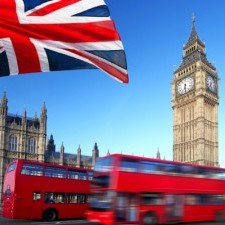New UK Gambling Framework A Game Changer For Global iGaming

In April this year, the UK parliament passed an online gambling ‘point of consumption’ (POC) regulatory framework as laid out in country’s Gambling Act, which is expected to be implemented on 1st October 2014. From that date on, all internet gambling operators, regardless of their location, will need to obtain a remote gambling licence from the Gambling Commission if they are to continue making their websites available to British consumers.
By all accounts, the new framework will also require operators to withdraw from a number of unregulated grey markets, which could subsequently lead to a polarization in the iGaming market where consumers in grey markets will no longer be able to access some of the world’s biggest and most respected sites. At the same time, new opportunities will be created for grey market operators not adverse to the risk.
UK an important market
The huge UK online gambling market is one of the most developed anywhere in the world, and continues to boom having generated £2.5 billion ($4.26bn) in revenues last year, £329 million ($559m) of which was derived from online poker. Those iGaming figures represent a significant 8% of the global market, according to H2 Gambling Capital, compared to other major regions such as Europe (excluding UK) which has a 37% share overall, USA (10%), Asia (32%), non-US North America (3%), and the Rest of the World (10%).
In 2011, the UK accounted for £100 million ($170m) of PokerStars‘ net gaming revenues alone, according to GamblingData.com., basically meaning that any major white market operator will now deem it necessary to apply for a licence and be part of the regulated UK market if they are to be accepted as responsible and legitimate international companies.
The Gambling Act 2014
Stated simply, the Gambling (Licensing and Advertising) Act 2014 requires all remote gambling operators serving the UK market to obtain a UK licence, including B2B poker operators such as Playtech and Microgaming. In addition, any remote gambling operators will need to obtain their software from UK licenced firms.
No significant exposure to grey markets allowed
The Act stipulates that any UK licence holders must not derive more than 3% of their revenues from iGaming grey markets (10% for small operators), and must also sumbit a legal rationale for being in such markets in the first place. Explaining this point further, Richard Richardson on onlinepokerreport, stated:
“It could be difficult to find a legal rationale for some popular markets (Australia, Russia and South Africa come to mind). There may be some legal wiggle room for other significant markets that lack a clear regulatory scheme for online gambling (think Canada, Germany and even Sweden, Finland or others in the EU).
Decline of offshore regulators
Up until now, remote gambling operators in the UK could obtain licenses from such “white list” jurisdiction, such as the Isle of Man, Alderney, or Bermuda; or alternatively from a EU jurisdiction such as Gibraltar or Malta.
The importance of such regulators has dramatically changed, though, as countries such as France, Spain, Italy, and Belgium decided to licence their own domestic iGaming industries and ring fence their players, thus cutting off convenient access by international operators. This in turn has simplified the once grey market licenses issued by offshore regulators into ones that are now considered either black or white.
Furthermore, the UK’s Gambling Act of 2014 could initiate an exodus of many big UK firms, such as William Hill, Ladbrokes, Victor Chandler, Bwin.Party, and BetFair, from regulatory jurisdiction such as Gibraltar, as they no longer will offer a clear advantage over a UK licence.
A stark choice for major operators
With the the Gambling Act of 2014 coming into force in October, major online gaming operators will be forced to pull out of global grey markets or cease operating in the lucrative UK market. The decision to focus on the UK, however, is likely to be an easy one, especially for major poker operators who will be aware of longer term opportunities. The UK, for instance, does not ring fence its player pools such as many other European countries, but does still successfully tax its own UK market, thus offering up a model which could be pursued by other countries and help reunite the segregated European market.
Either way, the UK Gambling Commission will soon become a dominant regulator of international internet poker, with its Commissioner and Chief Executive Jenny Williams saying she expects to receive at least 150 licence applications within the next few weeks.










